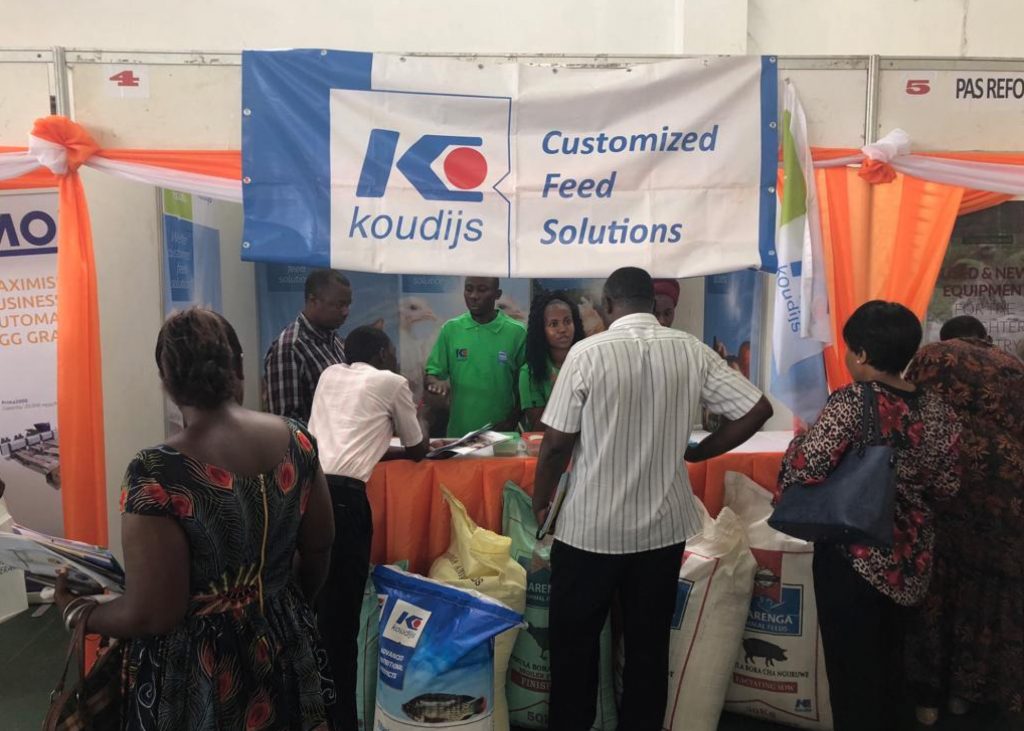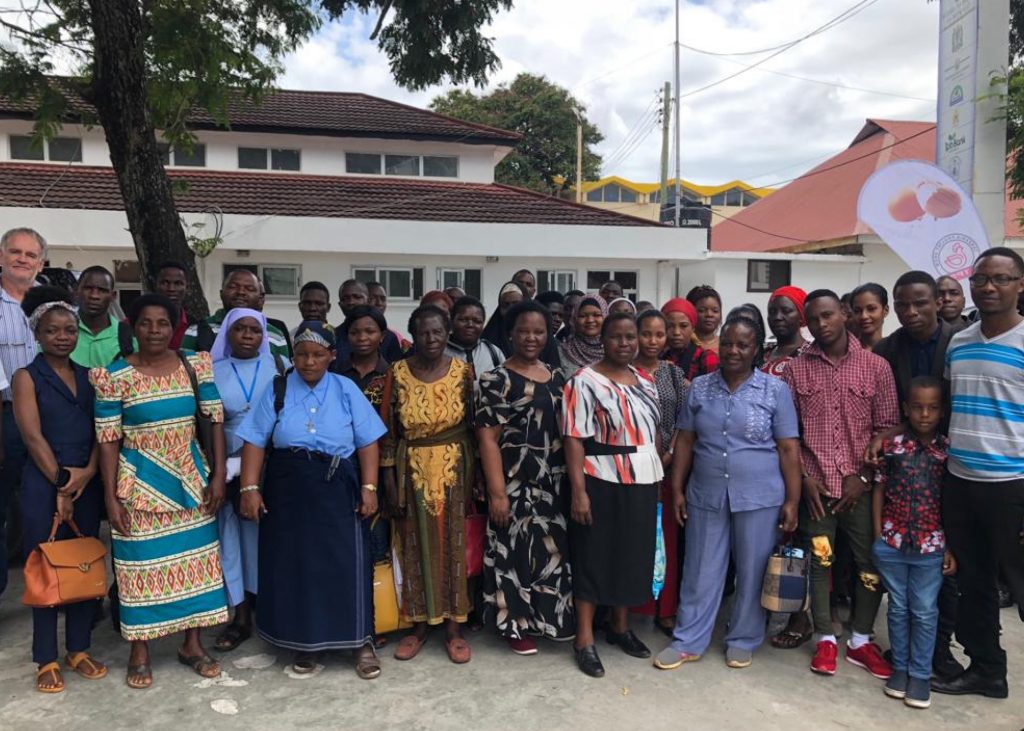The success of a recent poultry show in Tanzania demonstrates the U.S. Grains Council’s (USGC’s) commitment to improving lives while developing markets now and far into the future.
Fostering the growth of the poultry and feed milling industries in Tanzania is a key goal of the Council’s ongoing programs in that country and an approach that will build trust in the United States as the preferred supplier of quality feed ingredients as the industry grows.
The fourth annual Tanzania Poultry Show, hosted last week by the Poultry Association of Tanzania, exhibited the latest poultry, feed and meat production techniques available from both international and local companies.
Over two days in Dar es Salaam, the poultry show allowed local, regional and international attendees and exhibitors to exchange knowledge on how to improve production techniques and standards in poultry and feed operations. Throughout the show, participants attended seminars focused on biosecurity, poultry nutrition and feed quality analysis, among other topics. The Council supported attendees from association members from Morogoro, Arusha and Iringa to travel to the show, as it can be difficult for these farmers to travel to the host city.
“This association has always envisioned the show to be a professional poultry exhibit that provides the opportunity for those engaged in the Tanzanian poultry industry to gain insights into innovative, effective production techniques,” said Katy Wyatt, USGC manager of global strategies. “Doing so enhances the overall production capacity and capability of poultry producers and feed manufacturers in Tanzania.”
This year’s show included a record number of registered attendees – about 1,500 individuals – and a record number of exhibitors – 26 compared to 18 the year prior, with 16 exhibitors representing international vendors. Additionally, the Tanzanian Ministry of Foreign Affairs attended the show for the first time and vowed to work with the association in developing the poultry industry. The Tanzanian Minister of Livestock and Fisheries also served as the show’s keynote speaker, demonstrating even more support for the association’s work.
“A key component for the Tanzania Poultry Show is supporting continued growth in the number of attendees and exhibitors to encourage the recognition of the industry among local government, companies and especially potential international partners,” Wyatt said. “The Poultry Association of Tanzania envisions expanding its reach to become a leading poultry show in East Africa as Tanzania’s poultry industry continues to develop.”
“Having more organizations involved and engaged in the show will allow the association to not only sustain the work the Council has helped these producers achieve, and also ensure the industry continues to grow.”
The Council launched a program in Tanzania in spring 2014, fully funded by a Food for Progress (FFP) grant from the U.S. Department of Agriculture’s Foreign Agricultural Service (USDA’s FAS), to promote the development and professionalization of the country’s commercial poultry and feed sectors. As part of the program, the Council has trained more than 2,000 Tanzanian poultry producers in farm management and business practices.
Following up on this effort, the Council has worked with growers in Tanzania has worked to develop effective, self-sustaining and professional national poultry and feed associations – like the Poultry Association of Tanzania who organized the Tanzania Poultry Show – to further strengthen the local commercial poultry and feed industries. The association is a 10-member, umbrella organization representing poultry producers and feed manufacturers – a group the Council was instrumental in forming.
The positive results of these activities demonstrate the building blocks needed to help build successful commercial poultry businesses. A growing industry, in turn, generates increased consumption of both poultry within Tanzania and demand for the coarse grains — like U.S. corn — needed to feed them. This partnership with local industry to develop markets through trade is central to the Council’s work to improve lives for both U.S. farmers and customers, like those in Tanzania.
Learn more about the Council’s work in Tanzania here.
About The U.S. Grains Council
The U.S. Grains Council develops export markets for U.S. barley, corn, sorghum and related products including distiller’s dried grains with solubles (DDGS) and ethanol. With full-time presence in 28 locations, the Council operates programs in more than 50 countries and the European Union. The Council believes exports are vital to global economic development and to U.S. agriculture’s profitability. Detailed information about the Council and its programs is online at www.grains.org.


